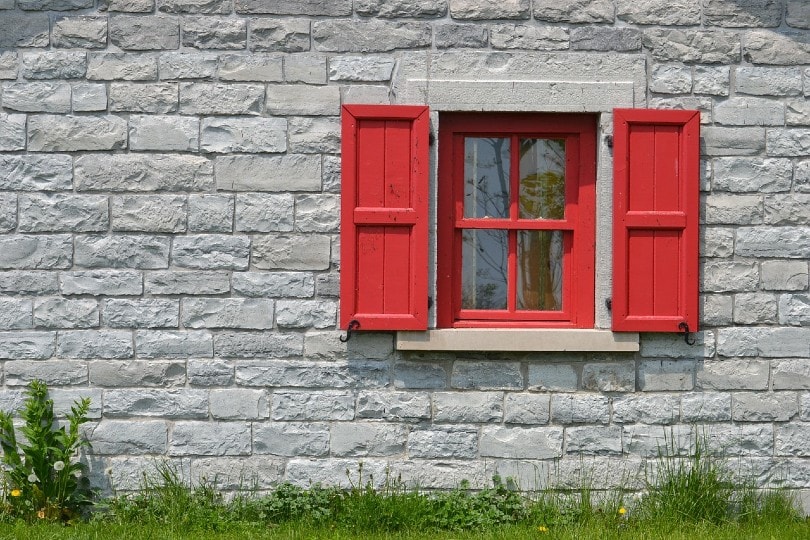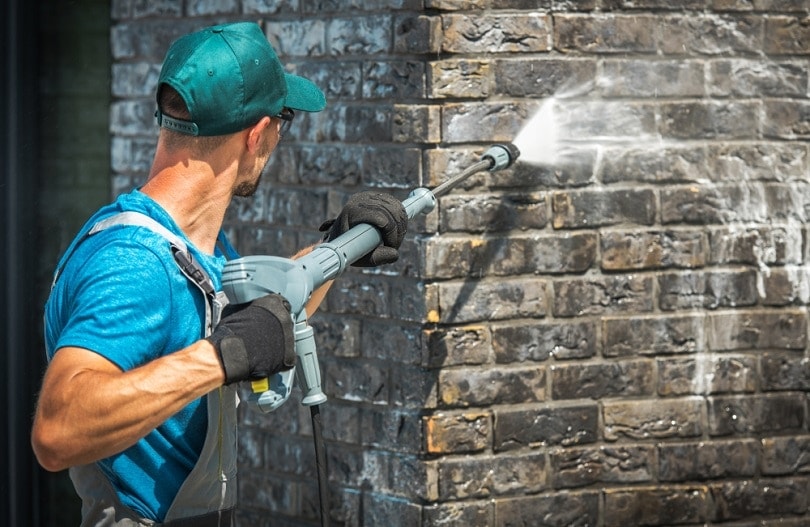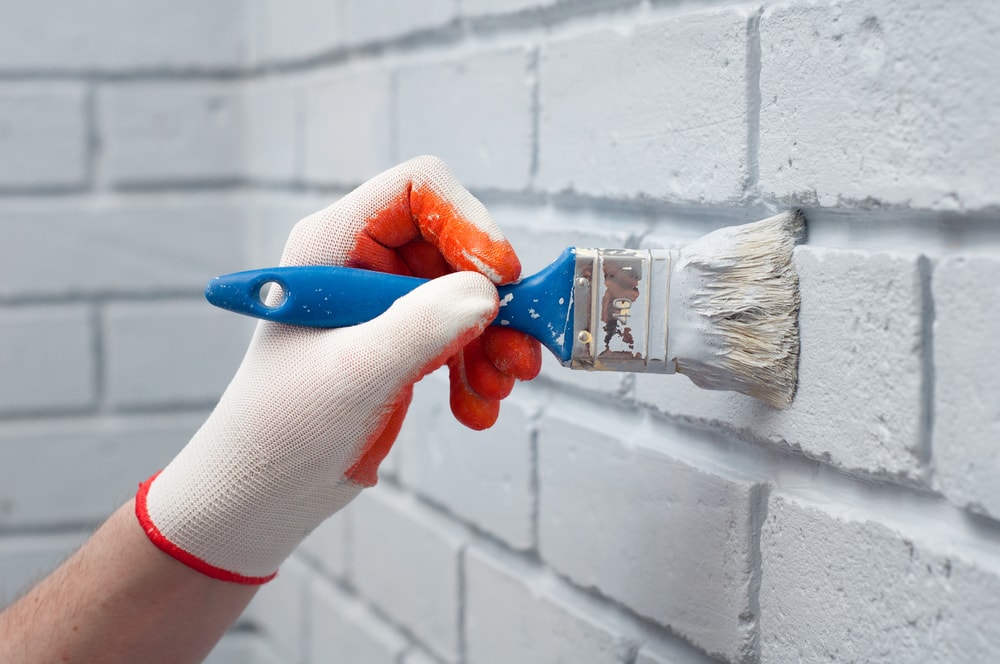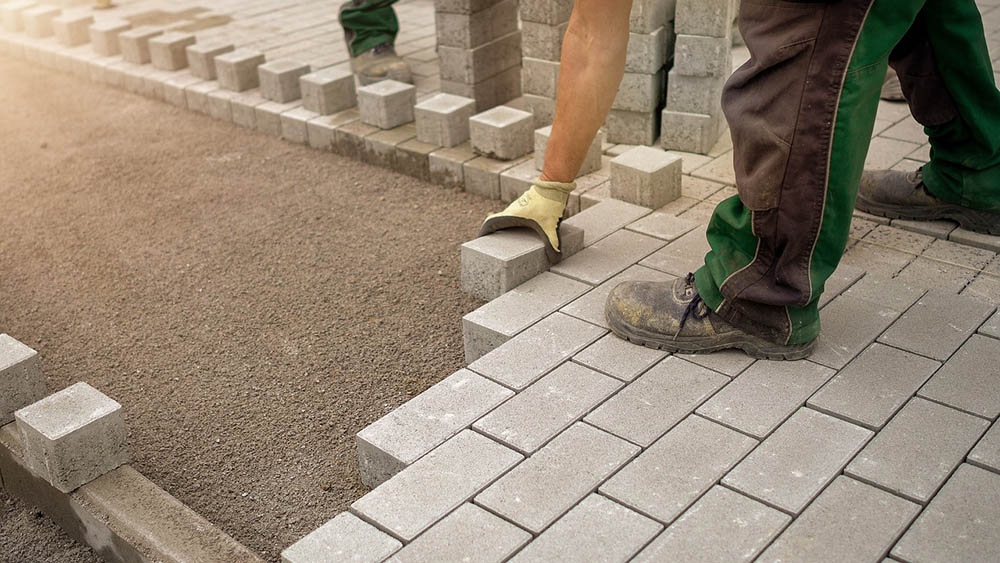What Is The Cost of Bricks? (2025 Update)
-

- Last updated:

Brick is one of the most common building materials in the world. From old cisterns to modern farmhouses, brick is used all over the world. Brick is a very durable and versatile building material that still appears today. But how much does brick cost? It is not a question that people ask often and most people don’t know off the top of their head.
This article will explain the cost of individual bricks, estimated material costs for certain jobs, and break down the most common additional costs that come with buying bricks.

The Importance of Maintaining Brick
Brick can last an extremely long time if maintained properly. Making sure your bricks are healthy, structurally sound, and placed properly can ensure that whatever kind of project you are doing will last a lifetime. Whether you are replacing old crumbling brick or installing new brick in an existing home, keeping up with the maintenance is key to having something that will last for years.
Owning something constructed of bricks will almost guarantee that you will have to buy more bricks at some point in your life, as well as some of the extra materials and labor that come with it. That is why it is important to know how much brick costs so you can properly keep up with it and plan for the future.

How Much Do Bricks Cost?
The cost of bricks can vary greatly depending on the type of brick. Bricks come in many different shapes, sizes, and forms, but there are some standard bricks that are used more often than most.
The most common type of brick is the standard red brick. A typical red brick costs about $0.65 per brick, but some bulk brick sellers can provide bricks for as little as $0.25 per brick.
| Type of Brick | Average Cost Per Brick |
| Red Clay | $0.65 |
| Cored | $0.70 |
| Thin | $1.10 |
| Concrete | $0.50–$5* |
| Ceramic | $0.90 |
* Market dependent
Using these numbers, we can estimate some average costs for brick jobs for the bricks alone. Bricks are used in a variety of different projects and knowing the estimated size of each project can greatly improve your personal estimates for bricks.
| Project | Number of Bricks | Estimated Cost* |
| 10’ x 4’ wall | 250 | $162.50 |
| 50’ x 4’ wall | 1,300 | $845 |
| 10’ x 8’ wall | 500 | $325 |
| 50’ x 8’ wall | 2,500 | $1,625 |
| Firepit | 125 | $81.25 |
| Mailbox | 175 | $113.75 |
*Based on $0.65 per standard red brick
Source: Home Guide
These tables will help you to estimate the material cost of specific brick jobs based on 2022 prices. However, these costs only factor in the cost of the bricks themselves and do not account for additional costs that might accompany some of these jobs.

Additional Costs to Anticipate
Unless you plan on simply stacking bricks by hand by yourself, there are going to be additional costs associated with brick and brick jobs. Here are the most common costs that you should look out for and some numbers to use in your estimates.

Labor
One of the biggest costs associated with bricks is labor. Bricklaying is very intensive work, and many people are not comfortable doing the labor themselves. Bricks can be bought in singles or in bulk by average people, and unlike other home projects, labor is not built into the upfront cost. For example, an electrical job will include labor and parts rolled into one price. Brick does not often have that, so you have to account for labor while looking at the cost of brick.
The average cost to lay 1000 bricks is $500. Small jobs that include less than 1000 bricks can charge as much as $1 per brick. That means if you are looking to replace 250 bricks, the labor cost could be $250 on top of the cost of the bricks themselves.
Mortar
Mortar is another thing that will have to be bought in conjunction with bricks. In order to bind the brick together, mortar has to be applied. Mortar can be obtained for $15. A typical 80-pound bag of mortar makes enough to comfortably lay 37 standard bricks.
If we use the previous example of 250 bricks, you would need 7 bags of mortar. That adds up to an extra $100 in addition to the labor.
Repointing
Repointing is the most expensive additional cost to be on the lookout for (we explain below just exactly what this process entails and why it’s important). Repointing is an essential part of a brick structure’s lifespan, but it can come with some serious costs. The average cost of a good repointing job is $10 per square foot. That will add up extremely quickly for large jobs. If you hear the word repointing when getting a consultation on existing brick, be prepared for a hefty price tag.
| Type | Typical Cost |
| Labor | $0.50–
$1 per brick |
| Mortar | $15 per bag |
| Repointing | $10 per square foot |

How Often Should I Replace My Brickwork?
Brickwork only needs to be replaced in the case of damage. If your bricks have not suffered any damage, then the bricks themselves will retain their structural integrity. The most common damage to bricks comes from blunt force, like a tree falling on it or from roots and erosion. If the ground shifts and causes the bricks to move and settle, that could cause damage.
While bricks rarely fail, the mortar that holds the bricks together can fail. Without mortar, bricks are just stacks of stones with no real integrity. The bricks themselves are often completely unphased by age, but the mortar will begin to wear down, causing you to have to replace it. That process is called repointing.

What Is Brick Repointing?
Repointing is the process of replacing the mortar that holds bricks together. Brick is an extremely durable building material, and it can last hundreds of years in the right conditions. However, the mortar that holds the brick together does not last as long. Repointing consists of manually chipping and chiseling out the old mortar and replacing it with new mortar.
The name pointing and repointing come from the fact that the tools used in this process are all pointed. Pointed trawls and chisels are used to remove the old mortar and lather on the new mortar.
- See Also: How to Paint Brick in 4 Easy Steps
How Often Does Brick Need To Be Repointed?
A good repointing job can last anywhere from 50 to 100 years. Repointing brick is not something that needs to happen regularly. In fact, if your brick needs more than one repointing job, then something else is happening to your mortar that is compromising the longevity of the job.
Repointing does need to happen in order to ensure the health of brick construction, but it should not be regular maintenance. You should expect to have one good repointing during the lifespan of your brick. Even then, some brick rarely ever needs to be repointed, and it might not even be a decision you run into at all.
Can Brick Be Used In New Construction?
Yes. Brick is still a popular building material around the world. Some geographic locations use brick more than others, but brick is still being used in many kinds of construction.
New construction using brick can include new houses, fireplaces, accent walls, outdoor flooring, brick ovens, chimneys, and facades. Brick is very durable, it lasts a very long time, and recently the look of brick has become extremely popular for builders and designers.

Conclusion
There is a large discrepancy in price between individual bricks and complete brick jobs. Labor, mortar, and repointing can add a lot of money to initial estimates. It is important to know how much individual bricks cost as well as all potential associated costs. The cost of bricks can vary wildly depending on if you just need to buy a few for yourself or if you need to get a full brick replacement scheduled with a professional.
See Also:
- How Much Does it Cost to Install a Gas Fireplace Insert
- 10 DIY Brick Mailbox Plans You Can Make Today
Featured Image Credit: juandavinci, Pixabay
Contents
